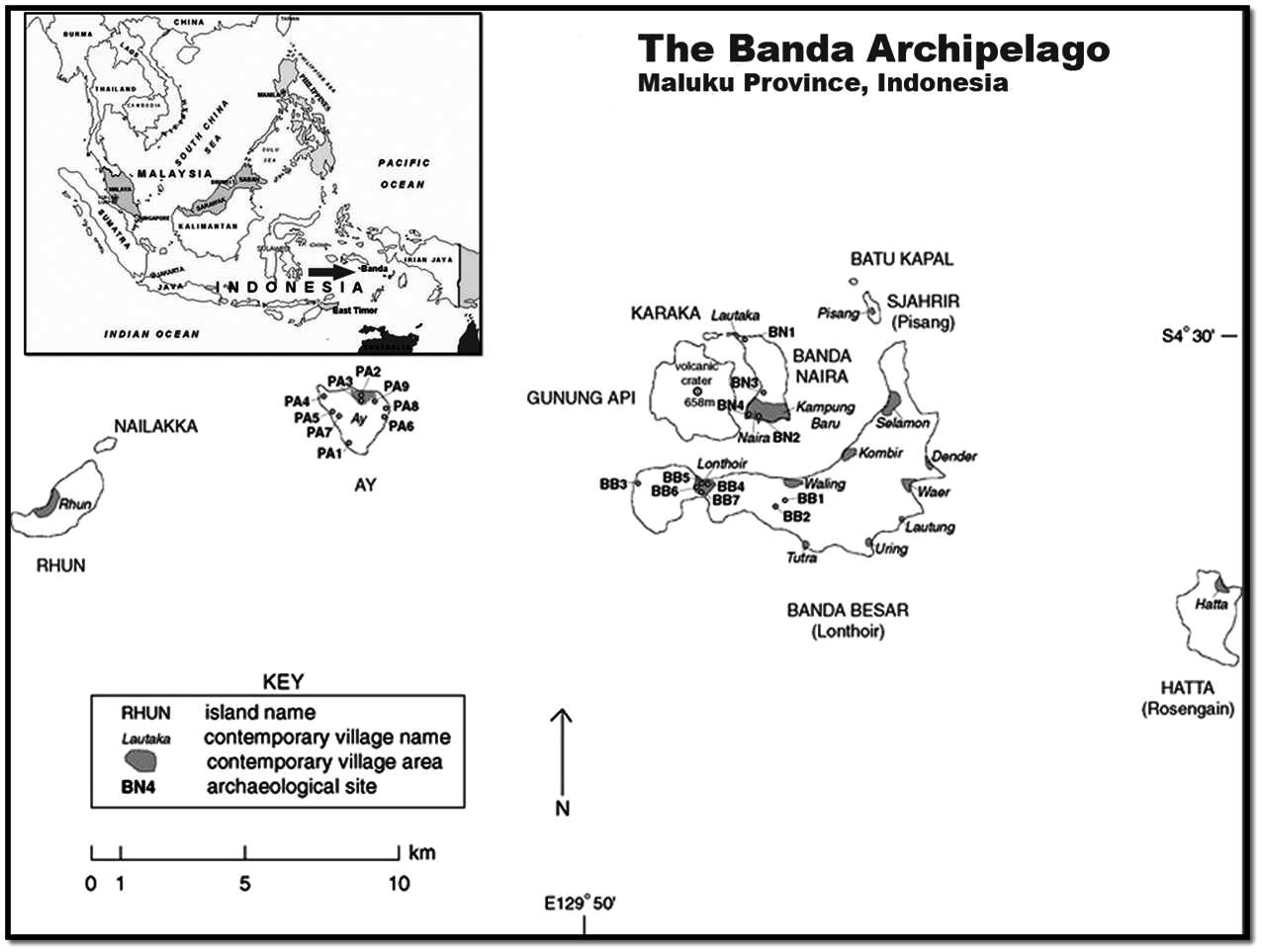Introduction
The Banda Islands, though insignificant in contemporary geopolitics, played an outsized role during the early days of the European exploration and colonization of Asia, Africa and the New World. As the world's sole source of the valuable spices nutmeg and mace, these nine tiny islands have attracted traders since at least 2000 years ago from China, South Asia and the Middle East. In the 16th century, European explorers discovered entire continents on their quest for these islands, which were first contacted in 1512 by a Portuguese expedition.
A century later, the islands were the site of one of the first experiments in plantation-style colonialism, and a primary source of income for the world's first modern multinational corporation, the Dutch East Indies Company. The events that took place during this period on Banda had enormous implications for the rest of the world, not to mention the Bandanese themselves, most of whom were massacred or enslaved by the Dutch by the 1620s.
This website documents archaeological and documentary research about the Islands’ history from earliest habitation more than 3000 years ago.

Map of the Banda Islands
